Hadrian Learning Trust - Educational Offer
This statement presents the intentions we have in educating the young people who attend our schools – Hexham Middle School and Queen Elizabeth High School – and gives an insight into how we seek to fulfil these intentions.
Ethos
Underpinning our offer is our ethos, which reads:
Outstanding eagerness to promote good learning*
This is a friendly, welcoming school, built on foundations of mutual respect and care for others. We work together to become all we can be.
We share a love of learning and believe in the highest academic standards for everyone. We value education in its broadest sense, knowing that the arts, sport and other opportunities help shape us as individuals and as citizens of the wider world.
We are committed to enabling all of our students to develop their knowledge and understanding, skills and mindset, so that they can take their next steps with confidence. Our aim is that every child will grow into a happy, fulfilled and successful adult.
* Taken from the Charter granted to the people of Hexham by Queen Elizabeth I, 1599
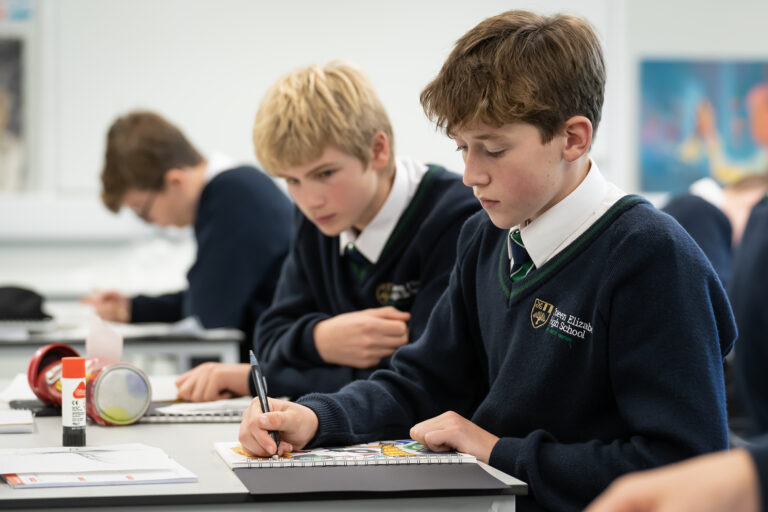
We seek to encapsulate our ethos in three key words – respect, engage and aspire – and use these to promote the living of our ethos as a reality in school. By ‘respect’ we mean respect and consideration towards ourselves and others, and to our school, community and global environment; by ‘engage’ we mean being curious, taking part, being open to new experiences and different perspectives, and by ‘aspire’ we mean being keen to gain knowledge and skills, have healthy ambition, set sights high, work hard, persevere and achieve one’s goals.
Our overall intention is to enable learners to enjoy acquiring and developing the skills, knowledge, understanding and character to thrive and flourish in our community and in the wider world.
Establishing good fundamental habits
Through form times, assemblies, general lessons and guidance and our code of conduct for learners, we repeatedly educate and encourage our young people throughout their time with us about the importance of attending well, of being punctual, of presenting oneself well, of being organised, of having a good attitude to learning and adhering to the rules. This is because these aspects, which we want to become ingrained habits, reflect the type of character we seek to instill, and they are fundamental to success in both school and in life.
Attitude to learning
We promote our three core values through every aspect of school life. Students are encouraged to embody respect, engagement and aspiration in all their subjects. Staff celebrate these behaviours through positive points and students’ attitudes to learning is reported with each data round using these core values.
Developing knowledge, skills and values
Knowing how to stay safe and healthy
We educate our young people so that they are equipped to make informed choices to keep themselves safe and physically and mentally healthy. We have planned, sequenced and coordinated curricula, across Personal, Social, Relationship (including sex education from year 7 onwards) and Health Education, physical education, science, computing and, in the middle school, food technology, to provide the knowledge our learners need. Where appropriate, we look to speak to our local context in designing these curricula, for example through pupil and student surveys, engaging with community policing, having awareness of local online safety issues, incorporating river safety within our wider ‘stay safe’ curriculum, and so on.
As a result of knowing how to stay safe and healthy, we enable our pupils and students to make the right choices to best support their emotional, physical and mental well-being and to thrive in personal relationships where we have the highest expectations of ourselves and others.
We share the key messages of these curricula with all staff so they know how to support the educating we want to do in these areas. We monitor the impact of our curriculum intentions in these areas through regular assessment including pupil and student panels and surveys.
Through form tutors, teachers, support staff, heads of year & key stage, and senior leaders, we seek to know each individual well, providing bespoke guidance and support, and especially so where individuals struggle with aspects of health or in making good choices around staying safe.
Being a capable reader
Being able to read well is a fundamental requirement for wider learning at school and a key indicator for future success in later education, employment and life. As a Trust, we promote the joy of reading and are committed to enabling all of our pupils and students, and particularly vulnerable learners who face disadvantage, to reach the standard of reading that is appropriate for their age and stage, through a rigorous and sequential reading curriculum designed to develop fluency, confidence and enjoyment in reading. Each learner’s reading attainment is assessed on entry to the schools with bespoke strategies in place to support the addressing of gaps in weak readers, including ensuring that those at the early stages of reading attainment gain the phonics knowledge and language comprehension necessary.
Having good numeracy skills
It is important that our pupils and students are able to apply mathematical knowledge, concepts and procedures appropriately for their age. To this end, assessments in maths are undertaken on entry to each school. Groups are largely set, with additional intervention support in place for those who struggle, with a particular emphasis on vulnerable learners who face disadvantage. At HMS, such support comprises pre-teaching, rapid recovery support and various small group interventions, e.g. focusing on arithmetic, reasoning, etc. At QE, we use bespoke maths software to support students to close gaps in their knowledge and understanding. We deploy a specialist maths support assistant to support those with additional needs who struggle, and put on targeted intervention and support sessions during form time, at lunchtimes and after school. Changes to the key stage 4 curriculum in Sept 2023 allow for more support in maths (and English) for the 20-25% who historically struggle to achieve grade 4 or better.
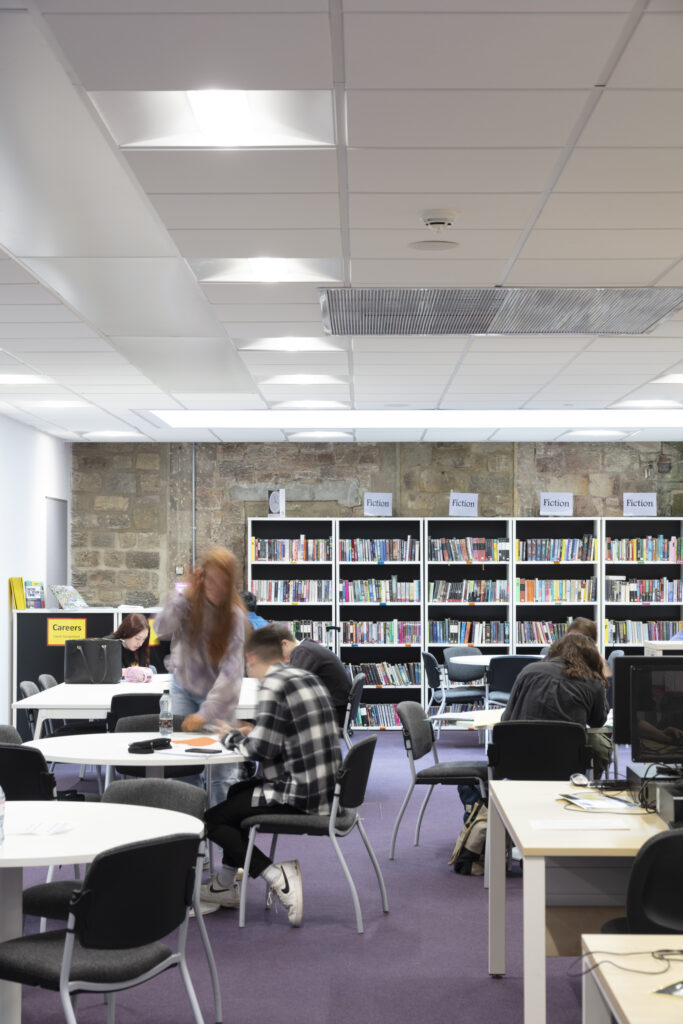
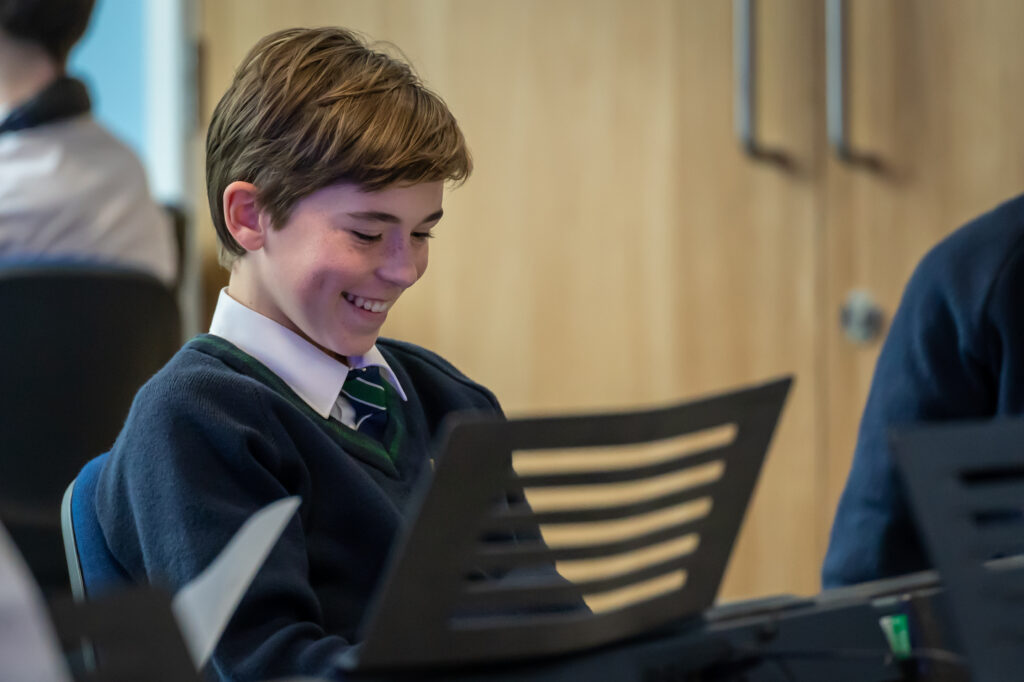
Having good character and values
We educate our young people to have good character and values, with our approach guided by the University of Birmingham’s Jubilee Centre for Character and Virtues. We seek to develop the following in our young people: intellectual virtues, which include reflection, focus and critical thinking; moral virtues, which include courage, compassion, humility, honesty, integrity, self-discipline and gratitude; performance virtues, which include confidence, resilience, teamwork and determination, and civic virtues, which include civility, service, citizenship and volunteering. We do this through a planned approach, giving emphasis to one virtue per half term and encouraging staff to model them, to refer to them in lessons and around school, and to recognise pupils and students via our rewards system when they demonstrate each virtue.
We teach the fundamental British values of democracy, the rule of law, individual liberty and mutual respect and tolerance of those with different faiths and beliefs to enable our young people to participate fully in and contribute positively to life in modern Britain. This includes developing knowledge of Britain’s democratic parliamentary system and its central role in shaping our history and values, and in continuing to develop Britain.
Having strong subject-specific knowledge and skills
We follow the National Curriculum at both schools, and include the undertaking of drama at key stage 3, because we value the role it plays in developing confidence, expression and oracy skills. We follow this curriculum because it offers a broad grounding in the essential knowledge that our young people need to be educated citizens of the wider world. It enables us to be clear about what they should know and be able to do. It enables us to build on what they have already learned. For more details on the curriculum at each school, see here (HMS) and here (QEHS).
Where appropriate, we use the flexibility we have within the national curriculum, for example through the topics we select, to take into account our local context and to make what is covered relevant to our particular community. In certain circumstances, this might mean building learning around specific aspects of our geographical and historical contexts, or it might mean using cultural examples beyond those to which our young people would typically be exposed.
To enable our learners to know more, do more and, crucially, remember more (in other words, to be secure in their learning) our teachers carefully select and systematically (and sequentially) teach the powerful knowledge we want our young people to have; that is knowledge combined with taught disciplinary ways of thinking that enables knowledge to then be applied effectively. Within this, the key vocabulary of each subject is systematically taught, so that our young people have the knowledge of key terms required for good subject literacy. Across the subjects, learners are encouraged to read high quality texts.
Careful thought is given to the sequencing of each individual subject curriculum, as meaningful learning occurs when learners are enabled to make sense of their learning and organise it coherently within what they already know. Our curriculum design in each subject ensures that the sequencing of content is based on careful thought of how progression of knowledge builds over time (across each year and key stage) and clarifies the intended gains in this knowledge by particular end points, e.g. end-of-topic, units, years, key stages.
Integral to our good curriculum design is well-considered assessment so that teachers know how our young people are progressing with their learning. Day-to-day, lesson-by-lesson, this is typically in the form of low stakes ‘quizzing’-style assessment and answer checking, with teachers adapting their short-term planning (often within lessons themselves) to quickly address gaps, for individuals, small groups or, if necessary, a whole class. At certain points, for example at the end of a topic, half-term or, indeed, year, assessment of learning security is undertaken, with outcomes compared with intentions for that point in time. To enable learning to become secure, our teachers give lots of opportunities for learners to revisit previously taught topics and skills. They also provide them with resources to help them review what has been taught. They know when learning will be further developed and will work to address gaps in knowledge through revisiting and retrieval activities and other forms of support.
We recognise that a number of learners at our schools experience disadvantage in their lives, which may include having special educational needs, that can leave them vulnerable to having gaps in their learning and to falling behind their peers. As such, all staff are committed to supporting them to overcome the disadvantage (through providing advantage). This involves teachers (and wider staff) knowing each young person’s profile (background, interests, what works, what doesn’t, etc), actively trying to build a positive relationship with them, knowing specifically where they are with their learning in relation to the curriculum intentions, and working with real determination and perseverance to enable them to reach the intended end points, which are as ambitious for these young people as they are for their non-disadvantaged peers. We actively coordinate provision and support across the different domains of a child’s education to ensure that a holistic approach exists for each young person facing disadvantage and struggling as a consequence.
Through the above, combined with highly effective teaching that reflects habitual implementation of the Trust’s 10 elements of great teaching, as well as subject-specific approaches as directed via the planning, our young people are enabled to learn well.

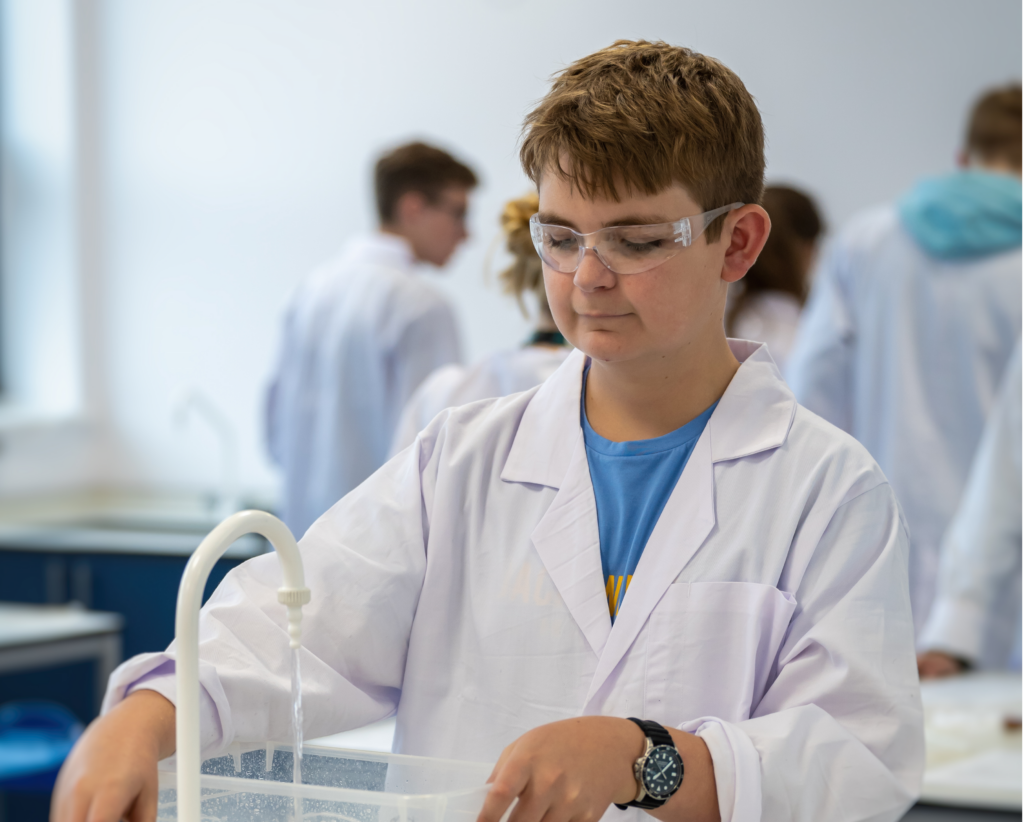
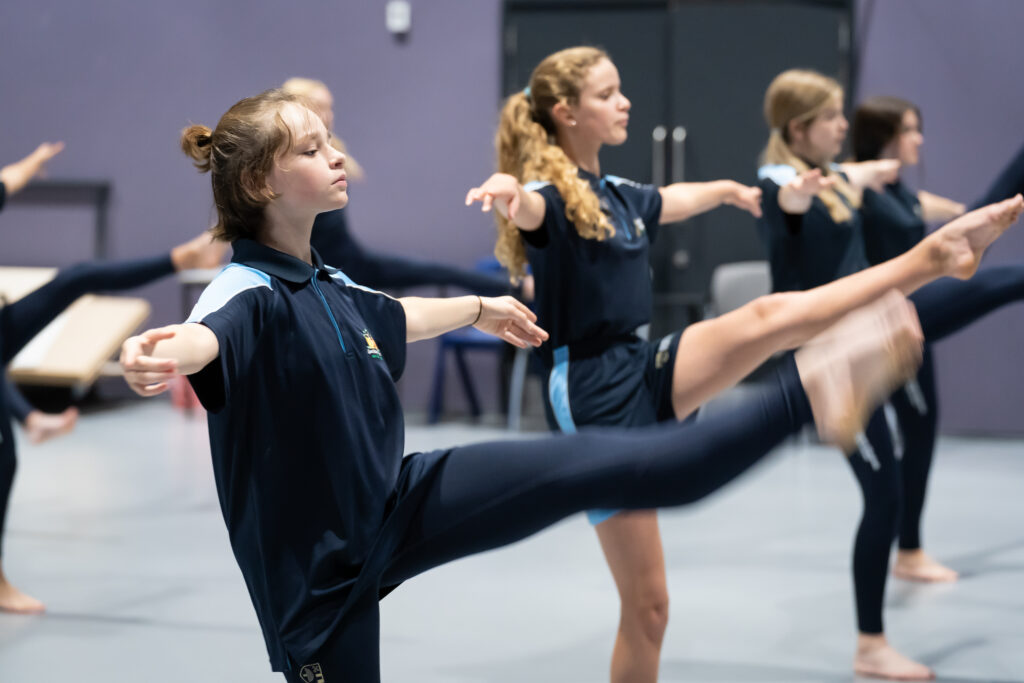
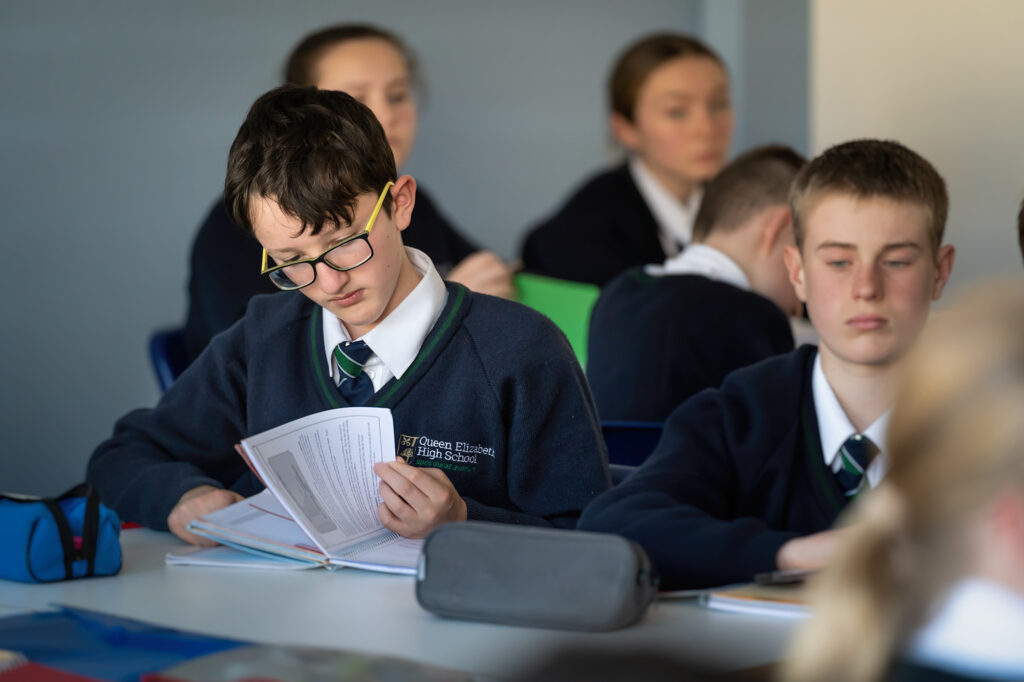
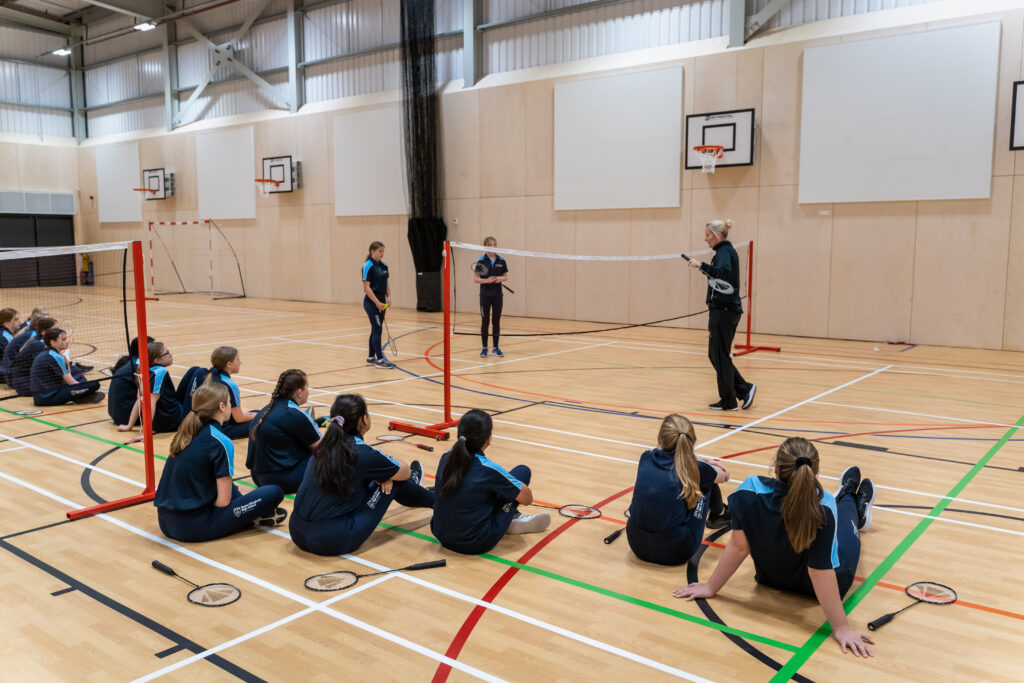
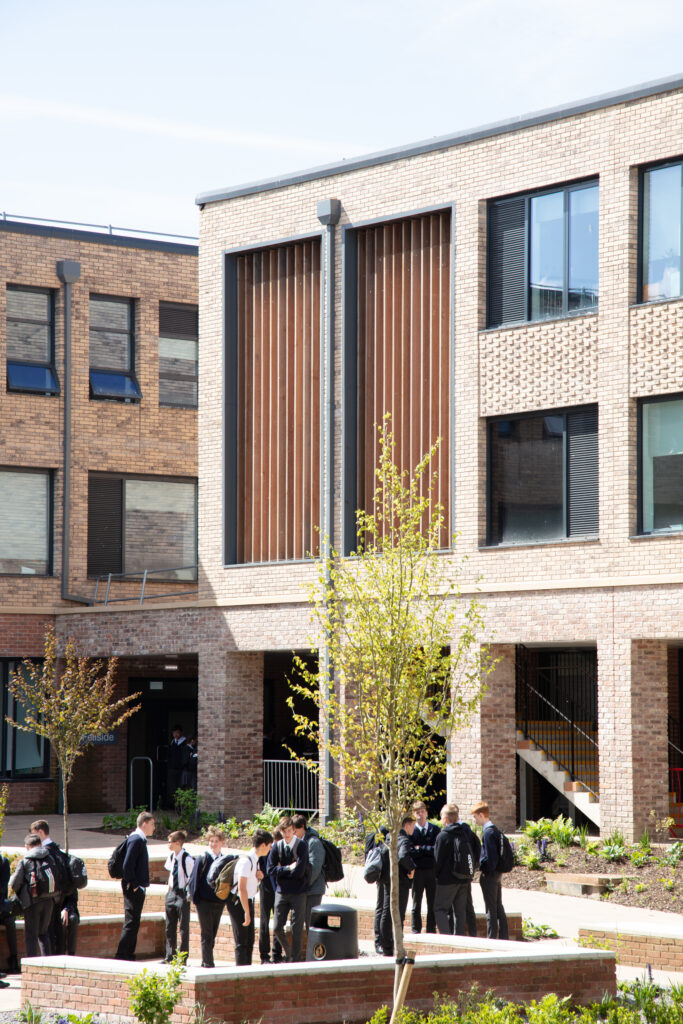
Gaining wider knowledge and skills development
In addition to core content on health and wellbeing and relationships, our PSHE and citizenship programme develops learners’ as citizens of the wider world. This includes learning about the nature of work, consumer rights, personal financial management, as well as learning about the unacceptability of discrimination, harassment and extremism. We also seek to educate our young people about climate change and the environment, and to enable them to develop agency in relation to such issues, through a well-considered combination of bespoke units, assemblies and aspects of subject curricula.
Through the PSHE and RE curricula, and in our day-to-day interactions, we seek to educate our young people: to have enjoyment and fascination in learning about themselves, others and the world around them; to be reflective about their own beliefs, experiences and perspective on life; to have knowledge of and respect for different people’s faiths, feelings and values; and to have interest in exploring, improving understanding of and showing respect for different faiths and cultural diversity.
We also seek to develop an understanding and appreciation of the wide range of cultural influences that have shaped learners’ own heritage and that of others, and an understanding and appreciation of the range of different cultures in the schools and further afield, developing the ability to recognise, and value, the things we share in common across cultural, religious, ethnic and socio-economic communities.
We recognise that, beyond the subject-specific skills being developed in school, there are some essential life skills that we want our young people to be strong in, to serve them well in school and in their adult lives. Using the Skills Builder Universal Framework, the skills we develop are: listening, speaking, problem-solving, creativity, staying positive, aiming high, leadership and teamwork.
Being able to make informed choices about next steps
We provide careers information, education, advice and guidance (CIEAG), in line with the statutory ‘Careers guidance and access for education and training providers’, to encourage our young people to make good choices and understand what they need to do to succeed in the careers to which they aspire. Underpinning our approach is our use of the Gatsby Benchmarks, through which we seek to embed good careers guidance throughout our young people’s education, so that they are well-equipped to make informed choices about their next steps.
The eight benchmarks are: 1. A stable careers programme. 2. Learning from career and labour market information. 3. Addressing the needs of each pupil. 4. Linking curriculum learning to careers. 5. Encounters with employers and employees. 6. Experiences of workplaces. 7. Encounters with further and higher education. 8. Personal guidance.
All teaching staff, across the subjects, have a responsibility to link subject curriculum learning with careers opportunities.
At key points of decision-making for students – in year 8 choosing a language, in year 9 choosing GCSEs, in year 11 determining post-16 destinations and in year 13 determining post-sixth form destinations – we offer comprehensive guidance and support, particularly so for those with vulnerability or who have experienced disadvantage.
The broader experience
We want our pupils and students to enjoy their time with us, to have enriching experiences, to develop their interests and talents, and to be enabled to move on from us well-placed to lead fulfilling and enjoyable lives. To these ends, we have a well-planned programme of artistic, musical, sporting, cultural and other opportunities so all our young people can both discover new interests and develop existing ones. We engage with and promote local, national or international programmes and organisations, including uniformed organisations, Duke of Edinburgh, National Citizen Service and so on. Pupils and students are also asked about activities they would like, and are supported in setting up their own groups.
We actively monitor participation with a view to it being sustained over time, seeking to understand and reduce barriers to participation where they exist (e.g. cost, timing, location, logistics, confidence, parental support etc.), enabling all, and in particular those who experience disadvantage in their lives, including those who have special educational needs, to feel as if they belong and are valued. This includes providing additional financial support where appropriate and possible.
